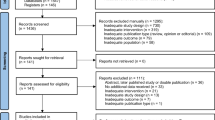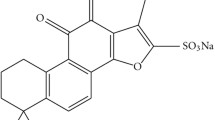Abstract
Tumor necrosis factor (TNF) inhibitors have been found to exhibit certain efficacy in treating refractory Takayasu arteritis (TA) in clinic despite severe adverse effects. The aim of this study is to investigate a natural anti-TNF compound, curcumin, its function, and its potential as treatment against TA. In total, 246 patients who were diagnosed of acute TA participated have completed this clinical trial. They were randomly assigned in either treatment group or control group, in which they were daily administered with curcumin or placebo accordingly for 4 weeks with weekly revisits for data collection. The treatment outcome consisted of a primary one defined using Birmingham Vascular Activity Score (BVAS) and a secondary one defined by laboratory results, e.g., C-reactive protein (CRP), TNF-α, and erythrocyte sedimentation rate (ESR). In this study, the primary and secondary treatment outcomes were found to be steadily attenuated in patients who received curcumin treatment, while showed no significant change in patients in placebo group. TNF-α was found to be significantly correlated with BVAS scores (γ 2 = 0.81, p = 0.016), ESR (γ 2 = 0.76, p = 0.037), and plasma levels of CRP (γ 2 = 0.79, p = 0.041). The treatment outcome was greatly improved by curcumin administration probably due to its anti-TNF property.



Similar content being viewed by others
References
Ishihara T, Haraguchi G, Tezuka D, Kamiishi T, Inagaki H, Isobe M. Diagnosis and assessment of Takayasu arteritis by multiple biomarkers. Circ J. 2013;77:477–83.
Kallappa Parameshwarappa S, Mandjiny N, Kavumkal Rajagopalan B, Radhakrishnan N, Samavedam S, Unnikrishnan M. Intact giant abdominal aortic aneurysm due to Takayasu arteritis. Ann Vasc Surg. 2013;27:671 e11–4. doi:10.1016/j.avsg.2012.06.022.
Schmidt J, Kermani TA, Bacani AK, Crowson CS, Matteson EL, Warrington KJ. Tumor necrosis factor inhibitors in patients with Takayasu arteritis: experience from a referral center with long-term followup. Arthritis Care Res (Hoboken). 2012;64:1079–83. doi:10.1002/acr.21636.
Nasu T. Takayasu’s truncoarteritis in Japan. A statistical observation of 76 autopsy cases. Pathol Microbiol (Basel). 1975;43:140–6.
Maksimowicz-McKinnon K, Clark TM, Hoffman GS. Limitations of therapy and a guarded prognosis in an American cohort of Takayasu arteritis patients. Arthritis Rheum. 2007;56:1000–9. doi:10.1002/art.22404.
Maksimowicz-McKinnon K, Hoffman GS. Takayasu arteritis: what is the long-term prognosis? Rheum Dis Clin N Am. 2007;33:777–86. vi doi:10.1016/j.rdc.2007.07.014.
Wallis RS, Ehlers S. Tumor necrosis factor and granuloma biology: explaining the differential infection risk of etanercept and infliximab. Semin Arthritis Rheum. 2005;34:34–8. doi:10.1016/j.semarthrit.2005.01.009.
Hoffman GS, Merkel PA, Brasington RD, Lenschow DJ, Liang P. Anti-tumor necrosis factor therapy in patients with difficult to treat Takayasu arteritis. Arthritis Rheum. 2004;50:2296–304. doi:10.1002/art.20300.
Tato F, Rieger J, Hoffmann U. Refractory Takayasu’s arteritis successfully treated with the human, monoclonal anti-tumor necrosis factor antibody adalimumab. Int Angiol. 2005;24:304–7.
Tanaka F, Kawakami A, Iwanaga N, Tamai M, Izumi Y, Aratake K, et al. Infliximab is effective for Takayasu arteritis refractory to glucocorticoid and methotrexate. Intern Med. 2006;45:313–6.
Molloy ES, Langford CA, Clark TM, Gota CE, Hoffman GS. Anti-tumour necrosis factor therapy in patients with refractory Takayasu arteritis: long-term follow-up. Ann Rheum Dis. 2008;67:1567–9. doi:10.1136/ard.2008.093260.
Maffei S, Di Renzo M, Santoro S, Puccetti L, Pasqui AL. Refractory Takayasu arteritis successfully treated with infliximab. Eur Rev Med Pharmacol Sci. 2009;13:63–5.
Nunes G, Neves FS, Melo FM, de Castro GR, Zimmermann AF, Pereira IA. Takayasu arteritis: anti-TNF therapy in a Brazilian setting. Rev Bras Reumatol. 2010;50:291–8.
Buonuomo PS, Bracaglia C, Campana A, Insalaco A, Pardeo M, Cortis E, et al. Infliximab therapy in pediatric Takayasu’s arteritis: report of two cases. Rheumatol Int. 2011;31:93–5. doi:10.1007/s00296-009-1147-5.
Gupta SC, Tyagi AK, Deshmukh-Taskar P, Hinojosa M, Prasad S, Aggarwal BB. Downregulation of tumor necrosis factor and other proinflammatory biomarkers by polyphenols. Arch Biochem Biophys. 2014;559:91–9. doi:10.1016/j.abb.2014.06.006.
Usharani P, Mateen AA, Naidu MU, Raju YS, Chandra N. Effect of NCB-02, atorvastatin and placebo on endothelial function, oxidative stress and inflammatory markers in patients with type 2 diabetes mellitus: a randomized, parallel-group, placebo-controlled, 8-week study. Drugs R D. 2008;9:243–50.
Koosirirat C, Linpisarn S, Changsom D, Chawansuntati K, Wipasa J. Investigation of the anti-inflammatory effect of Curcuma longa in Helicobacter pylori-infected patients. Int Immunopharmacol. 2010;10:815–8. doi:10.1016/j.intimp.2010.04.021.
He ZY, Shi CB, Wen H, Li FL, Wang BL, Wang J. Upregulation of p53 expression in patients with colorectal cancer by administration of curcumin. Cancer Investig. 2011;29:208–13. doi:10.3109/07357907.2010.550592.
Arend WP, Michel BA, Bloch DA, Hunder GG, Calabrese LH, Edworthy SM, et al. The American College of Rheumatology 1990 criteria for the classification of Takayasu arteritis. Arthritis Rheum. 1990;33:1129–34.
Luqmani RA, Bacon PA, Moots RJ, Janssen BA, Pall A, Emery P, et al. Birmingham Vasculitis Activity Score (BVAS) in systemic necrotizing vasculitis. QJM. 1994;87:671–8.
Nooshin D, Neda P, Shahdokht S, Ali J. Ten-year investigation of clinical, laboratory and radiologic manifestations and complications in patients with Takayasu’s arteritis in three university hospitals. Malays J Med Sci. 2013;20:44–50.
Minciullo PL, Catalano A, Mandraffino G, Casciaro M, Crucitti A, Maltese G, et al. Inflammaging and anti-inflammaging: the role of cytokines in extreme longevity. Arch Immunol Ther Exp. 2016;64:111–26. doi:10.1007/s00005-015-0377-3.
Neves H, Kwok HF. Recent advances in the field of anti-cancer immunotherapy. BBA Clin. 2015;3:280–8. doi:10.1016/j.bbacli.2015.04.001.
Cheng X, Wang Q, Li N, Zhao H. Effects of resveratrol on hippocampal astrocytes and expression of TNF-alpha in Alzheimer’s disease model rate. Wei Sheng Yan Jiu. 2015;44:610–4.
Park MC, Lee SW, Park YB, Lee SK. Serum cytokine profiles and their correlations with disease activity in Takayasu’s arteritis. Rheumatology (Oxford). 2006;45:545–8. doi:10.1093/rheumatology/kei266.
Tripathy NK, Gupta PC, Nityanand S. High TNF-alpha and low IL-2 producing T cells characterize active disease in Takayasu’s arteritis. Clin Immunol. 2006;118:154–8. doi:10.1016/j.clim.2005.09.010.
Comarmond C, Plaisier E, Dahan K, Mirault T, Emmerich J, Amoura Z, et al. Anti TNF-alpha in refractory Takayasu’s arteritis: cases series and review of the literature. Autoimmun Rev. 2012;11:678–84. doi:10.1016/j.autrev.2011.11.025.
Quartuccio L, Schiavon F, Zuliani F, Carraro V, Catarsi E, Tavoni AG, et al. Long-term efficacy and improvement of health-related quality of life in patients with Takayasu’s arteritis treated with infliximab. Clin Exp Rheumatol. 2012;30:922–8.
Singh S, Aggarwal BB. Activation of transcription factor NF-kappa B is suppressed by curcumin (diferuloylmethane) [corrected]. J Biol Chem. 1995;270:24995–5000.
Abe Y, Hashimoto S, Horie T. Curcumin inhibition of inflammatory cytokine production by human peripheral blood monocytes and alveolar macrophages. Pharmacol Res. 1999;39:41–7. doi:10.1006/phrs.1998.0404.
Jang MK, Sohn DH, Ryu JH. A curcuminoid and sesquiterpenes as inhibitors of macrophage TNF-alpha release from Curcuma zedoaria. Planta Med. 2001;67:550–2. doi:10.1055/s-2001-16482.
Gao X, Kuo J, Jiang H, Deeb D, Liu Y, Divine G, et al. Immunomodulatory activity of curcumin: suppression of lymphocyte proliferation, development of cell-mediated cytotoxicity, and cytokine production in vitro. Biochem Pharmacol. 2004;68:51–61. doi:10.1016/j.bcp.2004.03.015.
Jin CY, Lee JD, Park C, Choi YH, Kim GY. Curcumin attenuates the release of pro-inflammatory cytokines in lipopolysaccharide-stimulated BV2 microglia. Acta Pharmacol Sin. 2007;28:1645–51. doi:10.1111/j.1745-7254.2007.00651.x.
Woo HM, Kang JH, Kawada T, Yoo H, Sung MK, Yu R. Active spice-derived components can inhibit inflammatory responses of adipose tissue in obesity by suppressing inflammatory actions of macrophages and release of monocyte chemoattractant protein-1 from adipocytes. Life Sci. 2007;80:926–31. doi:10.1016/j.lfs.2006.11.030.
Cretu E, Trifan A, Vasincu A, Miron A. Plant-derived anticancer agents—curcumin in cancer prevention and treatment. Rev Med Chir Soc Med Nat Iasi. 2012;116:1223–9.
Nanji AA, Jokelainen K, Tipoe GL, Rahemtulla A, Thomas P, Dannenberg AJ. Curcumin prevents alcohol-induced liver disease in rats by inhibiting the expression of NF-kappa B-dependent genes. Am J Physiol Gastrointest Liver Physiol. 2003;284:G321–7. doi:10.1152/ajpgi.00230.2002.
El-Moselhy MA, Taye A, Sharkawi SS, El-Sisi SF, Ahmed AF. The antihyperglycemic effect of curcumin in high fat diet fed rats. Role of TNF-alpha and free fatty acids. Food Chem Toxicol. 2011;49:1129–40. doi:10.1016/j.fct.2011.02.004.
Siddiqui AM, Cui X, Wu R, Dong W, Zhou M, Hu M, et al. The anti-inflammatory effect of curcumin in an experimental model of sepsis is mediated by up-regulation of peroxisome proliferator-activated receptor-gamma. Crit Care Med. 2006;34:1874–82. doi:10.1097/01.CCM.0000221921.71300.BF.
Leyon PV, Kuttan G. Studies on the role of some synthetic curcuminoid derivatives in the inhibition of tumour specific angiogenesis. J Exp Clin Cancer Res. 2003;22:77–83.
Nishida M, Nishiumi S, Mizushina Y, Fujishima Y, Yamamoto K, Masuda A, et al. Monoacetylcurcumin strongly regulates inflammatory responses through inhibition of NF-kappaB activation. Int J Mol Med. 2010;25:761–7.
Huang WT, Niu KC, Chang CK, Lin MT, Chang CP. Curcumin inhibits the increase of glutamate, hydroxyl radicals and PGE2 in the hypothalamus and reduces fever during LPS-induced systemic inflammation in rabbits. Eur J Pharmacol. 2008;593:105–11. doi:10.1016/j.ejphar.2008.07.017.
Author information
Authors and Affiliations
Corresponding author
Ethics declarations
Conflict of interest
The authors declare that they have no conflict of interest.
Research involving human participants and/or animals
All procedures performed in studies involving human participants were in accordance with the ethical standards of the institutional and/or national research committee and with the 1964 Helsinki Declaration and its later amendments or comparable ethical standards.
Informed consent
Informed consent was obtained from all individual participants included in the study.
Rights and permissions
About this article
Cite this article
Shao, N., Jia, H., Li, Y. et al. Curcumin improves treatment outcome of Takayasu arteritis patients by reducing TNF-α: a randomized placebo-controlled double-blind clinical trial. Immunol Res 65, 969–974 (2017). https://doi.org/10.1007/s12026-017-8917-z
Published:
Issue Date:
DOI: https://doi.org/10.1007/s12026-017-8917-z




